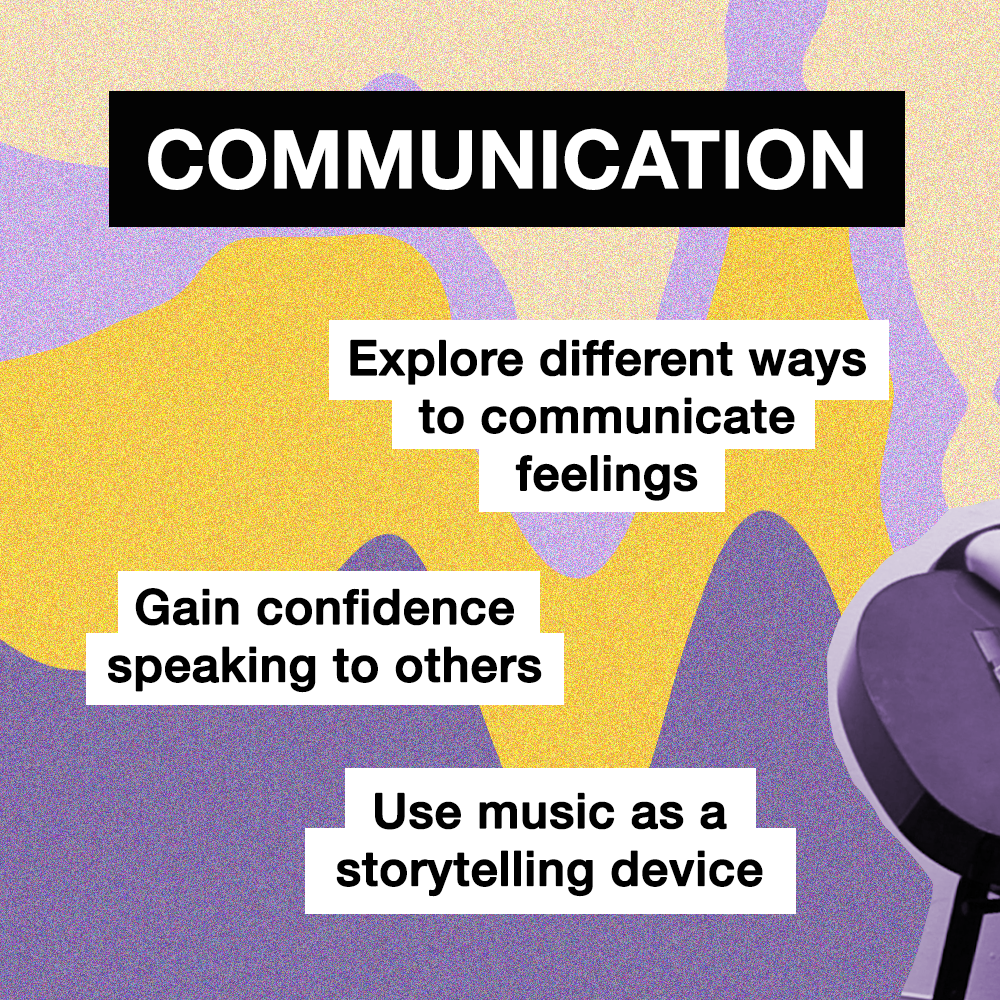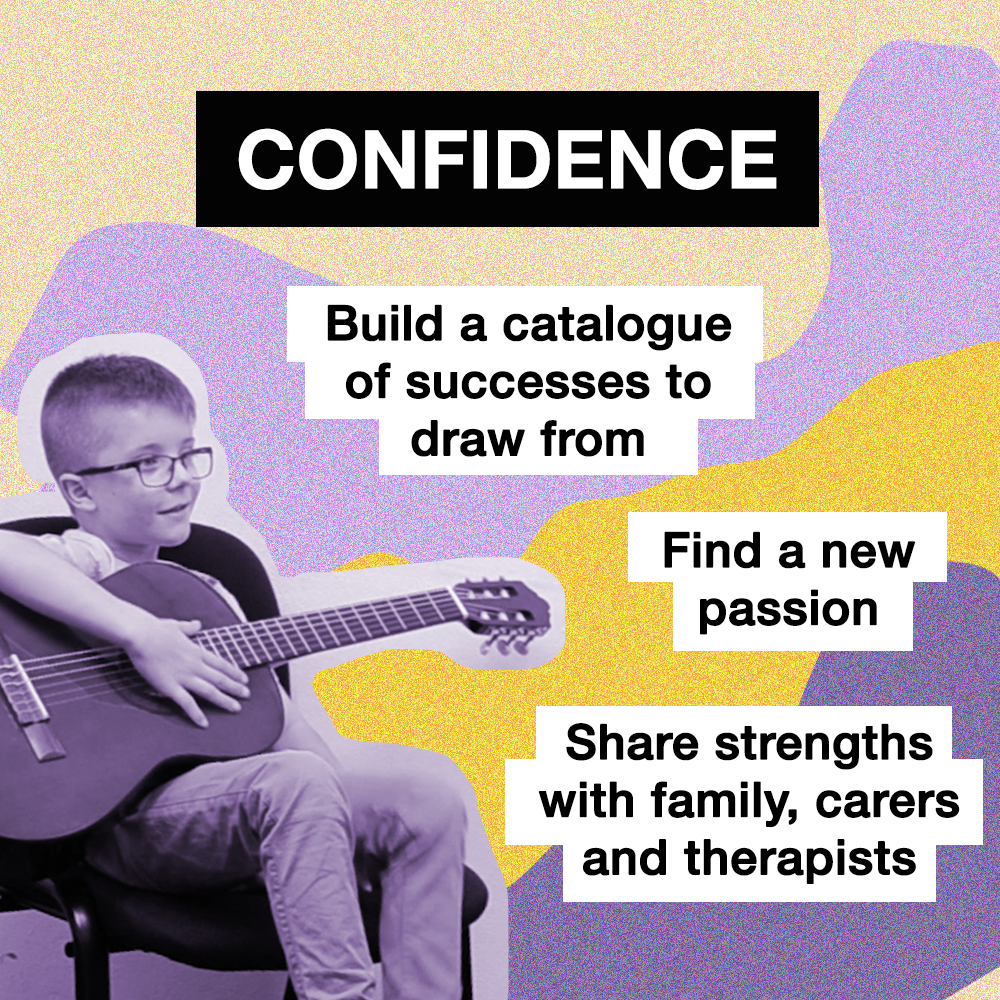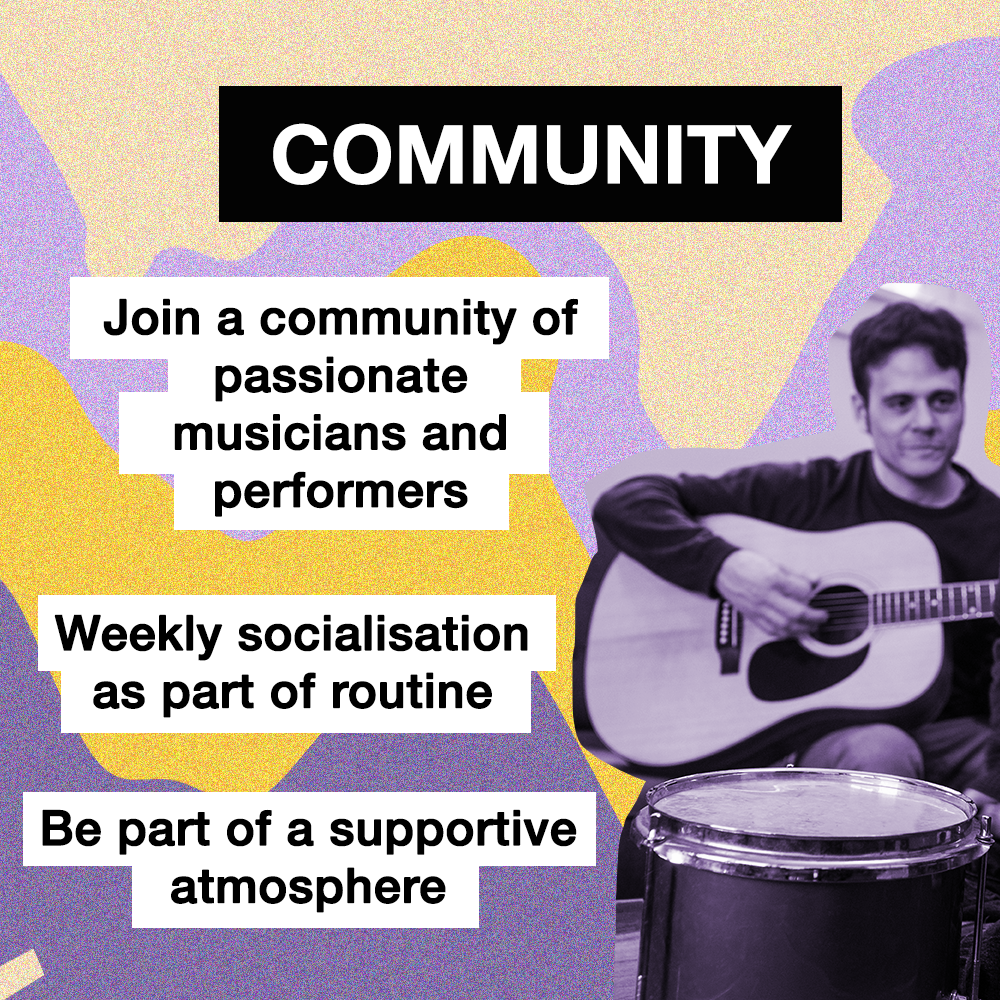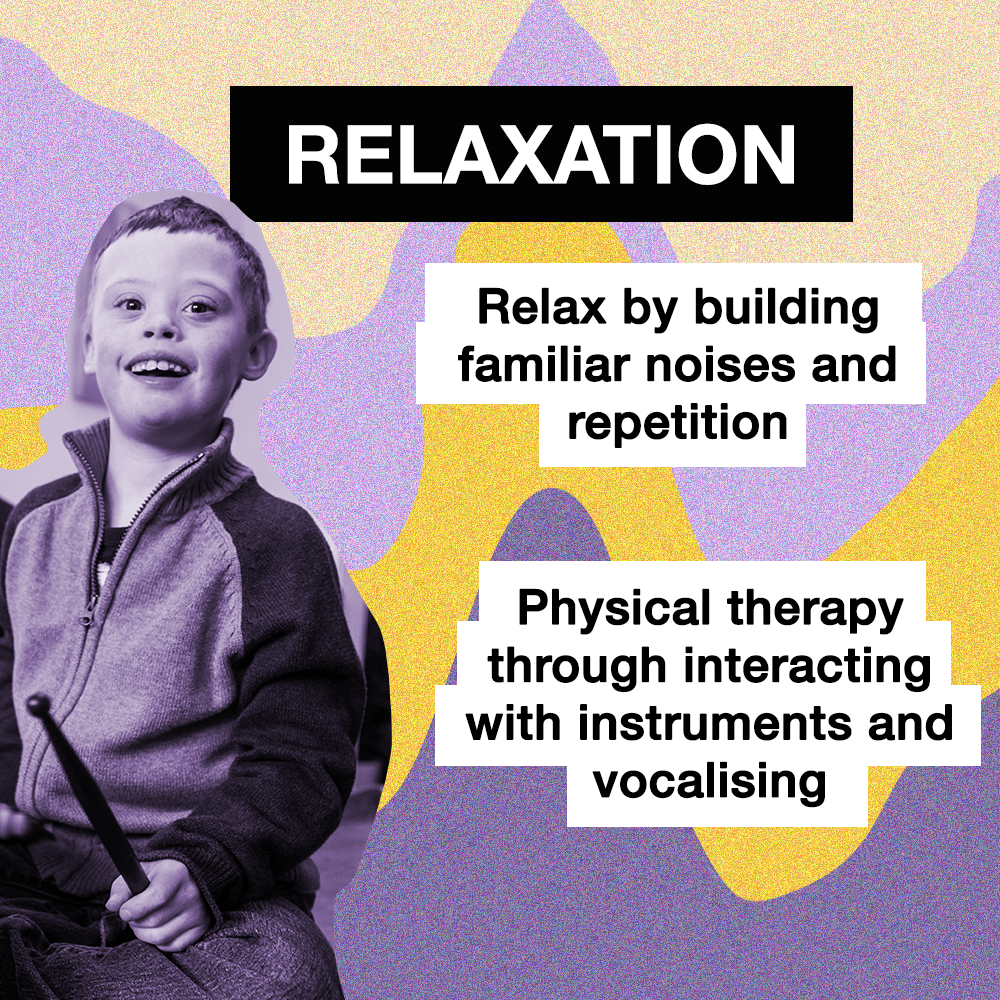Yes! Music therapy, delivered by a registered music therapist, has been recognised by the NDIS for inclusion under the support cluster of ‘Capacity Building - Improved Daily Living'. Access for NDIS funding for Music Therapy is available at Stormer Music for plan and self managed clients and their families.
1 x 30 Minute Class Per Week: $97 - 1 x 60 Minute Class Per Week: $189 & $189 per report (approx 5 per year).
Music Therapy involves the following steps:
- Initial assessment: we meet in person and get to know you. We will assess you/your child within a music therapy setting to determine current abilities and needs.
- Goal-setting: we will collaborate to identify specific goals and form a personalised program to work towards achieving them.
- Music therapy sessions: sessions consist of interactive interventions designed to address the goals we have set together. These could include singing, moving to music, playing instruments, improvising through music and song-writing.
- Evaluation: we regularly evaluate and review the process and outcomes with you to ensure success.
A Registered Music Therapist (RMT) is registered with the Australian Music Therapy Association. Music Therapists are highly trained in using music to change lives for the better through programs tailored to meet the unique, evolving needs of each client we work with. To become a music therapist one will usually have to complete a music degree followed by a postgraduate qualification in music therapy. Graduates with a degree in another discipline may be considered for postgraduate degrees if they have an appropriate level of musical experience. Our music therapists are hand chosen for not only their musical and therapeutic capacity but for value alignment, communication skills, ethics and heart.
There is a large body of research that describes how music affects the brain and how music can assist individuals with special needs. Music activates many areas of the brain and has been found to positively affect development, learning and daily functioning. These functions include attention, listening, speech production, emotions, motor skills, memory, coordination and decision making.
For people whose disabilities are severe and profound, music therapy tends to address goals focused almost exclusively on interaction, communication, socialisation and physical needs. Research shows that using a person’s preferred songs can enable people with profound intellectual and multiple disabilities to improve their choice-making skills using non-verbal facial expressions and eye-gaze. You will love it!







